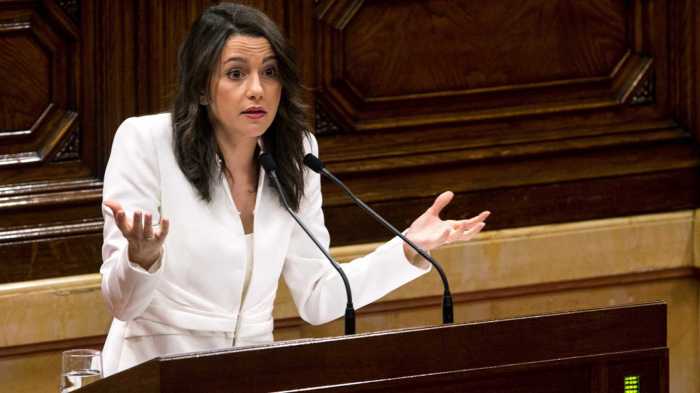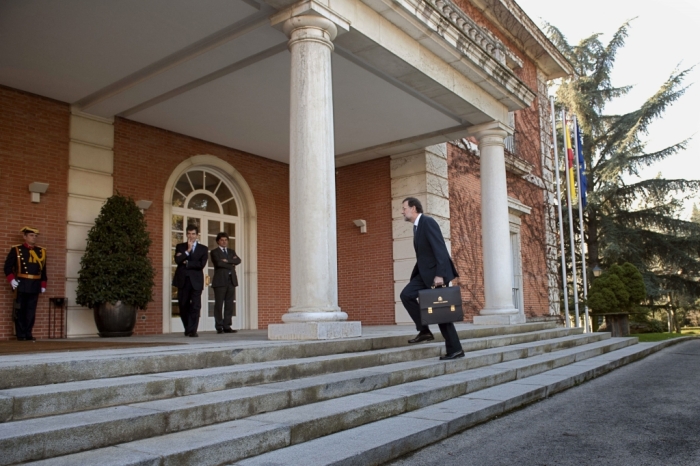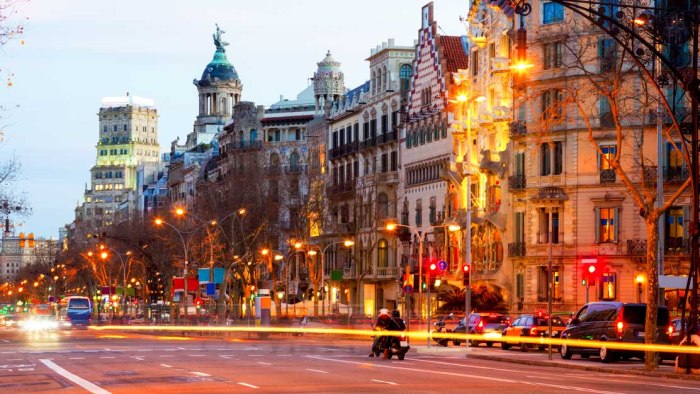Ciudadanos: Spain’s New Populist Centrists

Foreign Policy, 5 June 2018, Why Spain’s Top Populist Is a Centrist–Alberto Rivera is tearing down his country’s establishment from the middle. Just don’t call him Spain’s Emmanuel Macron.

Extract/Summary: Last week’s political drama in Madrid resulting in a change in government had two main players: former Prime Minister Mariano Rajoy of the conservative Popular Party (PP), who was ousted from power after he received a no-confidence vote from the majority of members of parliament, and Pedro Sánchez, head of the Spanish Socialist Party (PSOE), who masterminded the vote. Sanchez emerged as prime minister.

Rajoy’s ouster boosted expectations of Alberto Rivera’s emergence as the new face of Spanish conservatism with his Ciudadanos replacing the PP as Spain’s leading conservative party. Earlier this year, Metroscopia, Spain’s leading public opinion outfit, had declared Spain was entering a “Ciudadanos moment.” Polls published before Rajoy’s downfall suggested that Ciudadanos was poised to win the next elections.

Rivera and Ciudadanos have been compared to France’s Emmanuel Macron and En Marche!. There are similarities: a pro-business attitude, unabashed support for the European Union, and a technocratic approach to governance. Both parties provide a counterbalance to the rise of anti-establishment, right-wing populist parties, as well as Euroskepticism.

However, Ciudadanos has a uniquely Spanish history. Macron could usurp his country’s establishment by promising to serve as a bulwark for reform and against outside interference in favor of Le Pen. In contrast, Ciudadanos’ insurgency has gained momentum because of the PP’s lengthy rule, fatigue with Rajoy, excessive centralism and corruption, as well as the decades stranglehold on power by the PP and PSOE.

Ciudadanos was one of two new Spanish political movements. The other one is the left-wing, populist Podemos. These two new parties challenged the hegemonic claim on political power by the PSOE and PP. Ciudadanos and Podemos made transparency, anti-corruption, and political reform the core of their political platforms. Ciudadanos all but pitched itself as Podemos without the radical leftwing politics.

At its inception, in 2006, Ciudadanos only competed in Catalan regional elections.

Ciudadanos’ early party platforms, anchored on the concept of “regeneration,” or the rebirth of the political system, blurred the conventional discourse of left and right by emphasizing the fight against monopolies (which were viewed as the source of corruption), pushing for civility and transparency in government, and tackling seemingly intractable social problems such as homelessness and drug abuse. They party also preached inclusiveness.

One of the party’s earliest slogans was: “We don’t care where you were born. We don’t care which language you speak. We don’t care what kind of clothes you wear. We care about you.”

As the party matured, it became more conventionally conservative by, among other things, embracing the austerity measures implemented by the PP to deal with the economic crisis and becoming a staunch defender of Spanish nationalism — which opened Ciudadanos to criticism of having become the “Podemos of the right.”

Ciudadanos sought to appeal to disillusioned Catalan voters, especially socialist and center-right voters disenchanted with the corruption that afflicted not only the national parties, but also Catalonia’s Convergence and Union, the centrist electoral alliance that dominated Catalan politics since the democratic transition. Ciudadanos was a key beneficiary of Convergence and Union’s implosion, after the party’s founder and the longtime head of the Catalan government, Jordi Pujol, was convicted in 2014 on a host of corruption charges.

But it was the Catalan separatist crisis that turned Ciudadanos from a regional party into a party with national aspirations. The party made a splash with its criticism of the Catalan separatist government that took control of Catalonia in 2015. Rivera criticized the Catalan political class for making nationalism the only issue in Catalan politics, and he attacked Catalonia’s independence aspirations as unconstitutional. He also supported Rajoy’s unprecedented but constitutional decision to remove from power the separatists. But Rivera was critical of Rajoy’s strong stance against negotiations with the separatist government.

Throughout the crisis, Ciudadanos emphasized its motto: “Catalonia is my homeland, Spain is my country, and Europe is our future.”

It was ironic that, despite coming to prominence as an anti-corruption party, Ciudadanos declined to support the no-confidence motion that led to Rajoy’s ousting. After all, the motion to remove Rajoy came in the wake of a series of stunning indictments of the PP on corruption charges.

Rivera played a delicate balancing act — not quite ready to throw Rajoy under the bus but also not wanting to collaborate with its nemesis, Podemos, and — worse yet — with the Catalan separatist party Esquerra Republicana. He urged Rajoy to call for a snap election.

Rivera wanted a “consensus” candidate, someone like Javier Solana, the Socialist elder and former secretary-general of NATO. In the end, the Socialists did not need Ciudadanos’ votes to oust Rajoy, once they got support from Podemos and the nationalist parties from the Basque Country and Catalonia.

Rivera is looking ahead to the next elections, the date of which has yet to be set. He is banking on Spanish unity as a trump card. The PP is seen as too extreme on the issue, while the PSOE is viewed as too weak. This leaves a Catalan party preaching Spanish unity as the best-positioned party to heal the divisions of the last few years. The chances that Spanish unity will remain atop voters’ concerns are encouraged by the fact that the economy, for a change, is not an overriding concern.

Although unemployment remains high, at about 15 percent — one of the highest among developed countries — this is 10 percentage points lower than at the peak of the crisis, in 2012, when unemployment reached a quarter of the active population. Economic growth has been restored, with the Spanish economy now growing at a rate of almost 3 percent annually, outperforming France, Germany, and Italy. Thus, Ciudadanos is not having to concern itself with a populist challenge from the right.

Less apparent is that Ciudadanos is also angling to return to the party’s original focus on regeneration. This is what Ciudadanos hopes will separate the party from the establishment parties (the PSOE and the PP), but also from its upstart rival, Podemos. At last year’s gathering of the grandees of Ciudadanos, Rivera announced his intention to reframe the party’s ideological project as “progressive liberalism.” He added that his aim was to fill the political space between the conservatism of the PP and the populism of Podemos. For more, please see the hyperlink below:

http://foreignpolicy.com/2018/06/05/why-spains-top-populist-is-a-centrist/

